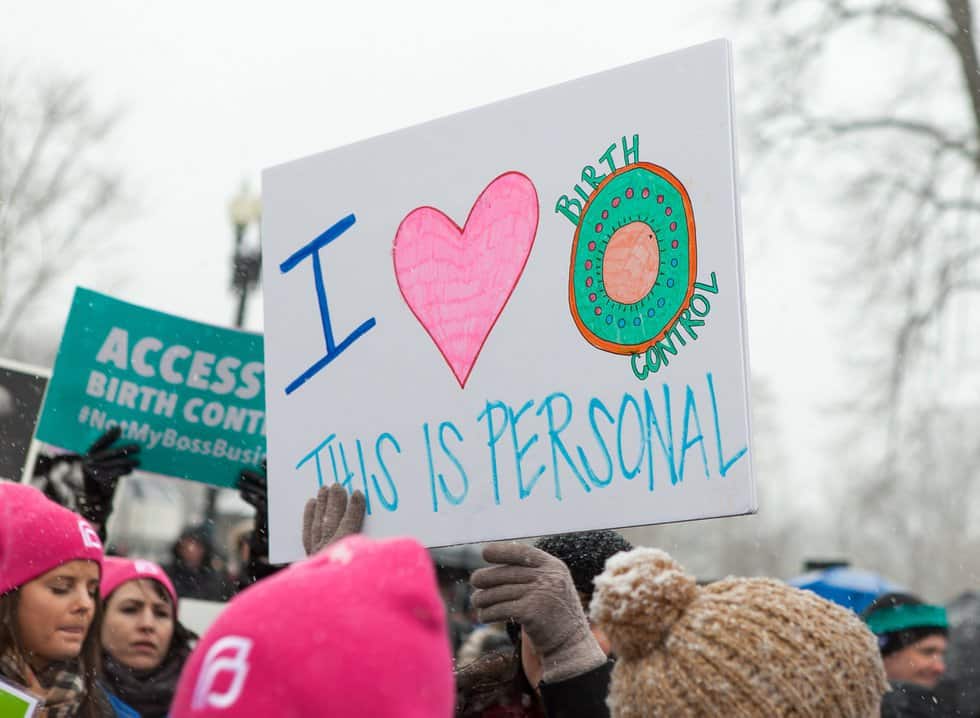In 2010, the Affordable Care Act (ACA) emerged as a ray of hope for the sixty-four million women in the United States now entitled to no-cost preventive services. With their health insurance, it promised no-cost access to birth control, a vital component of health care.
This pledge was a significant milestone in the struggle for affordable contraception. No-cost contraception empowers people to make informed choices about their reproductive health, enhancing their educational opportunities, career prospects and economic stability.
It also saves money. In the first year of the ACA, for example, women saved $1.4 billion in out-of-pocket expenses; per person, that’s $255 each.
READ: Congressional Democrats Renew Push to Protect Access to Birth Control
But this promise has yet to be fully realized. Despite the ACA’s mandate and repeated government directives emphasizing free access to all FDA-approved contraceptives, insurers and pharmacy benefit managers have not fully adhered to these guidelines.
Now, in 2023, birth control is still inaccessible for many people who need it. Countless women are struggling to obtain no-cost birth control that they are legally entitled to. The “Secret Shopper” report by Power to Decide and the U.S. House Committee on Oversight and Reform reveals a grim reality.
The report exposes how insurance companies nationwide routinely violate the ACA’s requirement for plans to cover all FDA-approved contraception options with no out-of-pocket costs. These violations have left an untold number of women still paying out-of-pocket costs for birth control.
This non-compliance has far-reaching consequences. It hampers innovation in reproductive health care and exacerbates health inequities. The impact of these denials falls hardest on historically marginalized communities and those struggling to make ends meet.
For those facing challenges in accessing no-cost birth control, help is available. CoverHer.org, run by the National Women’s Law Center, assists individuals struggling to get the coverage they are entitled to under the law. This resource empowers people to advocate for their health rights and ensures that the promise of the ACA is fulfilled.
The federal government must act swiftly to ensure coverage for all FDA-approved contraceptives lacking therapeutic equivalent generics with firm penalties for non-compliance. Therapeutic equivalent generics are FDA-approved drugs that are identical in active ingredients, dosage form and administration route, meeting stringent quality and safety standards. The FDA’s Orange Book lists these drugs, guiding insurers and providers in recognizing interchangeable medications for optimal patient care.
READ: The Game-Changing Promise of an OTC Birth Control Pill
The denial of no-cost birth control is not just a policy issue; it is a profound betrayal of trust and a flagrant violation of people’s rights. It is an affront to reproductive autonomy and agency and a stark reminder of the systemic injustices that continue to plague our society.
But there is hope. Together, we have the power to bring about change. The struggle for no-cost birth control is a collective one, requiring our active engagement. We can raise our voices, assert our rights, and stand in solidarity with all those still denied access. We can support resources like CoverHer.org, and play an active role in shaping a future where everyone has the autonomy to control their destiny.
So, let us not be silent. Let us not be passive. Let us seize this moment, take action, and fight for a world where reproductive well-being is not a privilege but a right. The time for change is now.
This column was produced for Progressive Perspectives, a project of The Progressive magazine, and distributed by Tribune News Service.






